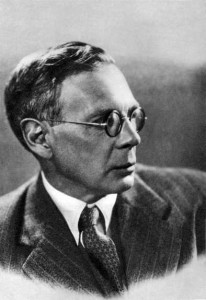 Grevel Lindop entitled his 2015 biography of Charles Williams, The Third Inkling. That’s an apt moniker. The Inklings are dominated in the popular mind by C.S. Lewis and J.R.R. Tolkien, but among the Inklings Charles Williams was a revered member. Anyone who has been caught up in the evangelical C.S. Lewis machine (for there is no better word for it) will be familiar with the name Charles Williams, but it is likely that, for most, the name of Williams will be shrouded in mystery.
Grevel Lindop entitled his 2015 biography of Charles Williams, The Third Inkling. That’s an apt moniker. The Inklings are dominated in the popular mind by C.S. Lewis and J.R.R. Tolkien, but among the Inklings Charles Williams was a revered member. Anyone who has been caught up in the evangelical C.S. Lewis machine (for there is no better word for it) will be familiar with the name Charles Williams, but it is likely that, for most, the name of Williams will be shrouded in mystery.
I recently had the opportunity to read his 1930 novel, War in Heaven. It was weird and interesting and, I would say, fantastic. I did not really know what to expect, though I knew that Williams’ work tended to deal with occult matters and Christian themes. What I found in War in Heaven was a well-written, well-paced, engaging thriller that involved black magic, the Holy Grail, Christian theology, murder, alchemy, and kidnapping. It was a really engaging book
The story is about the discovery of the Holy Grail in an English country church and the plot of a mysterious group involved in occult practices to steal the grail for their own nefarious purposes. Opposing them is an Archdeacon who goes on a journey of self-discovery in his efforts to protect the grail, a Duke, and a mysterious gentleman who turns out to be Prester John! In some ways the book felt somewhat like Lewis’ That Hideous Strength, likely because of the presence of mythological figures in the present day.
Williams’ novel is part “whodunit,” part arcana, part fantasy, and part theological tract. It is an odd story, and I mean that as a compliment. If you would like to read an engaging tale that will keep you turning the page and will challenge you to think as well, you can do a lot worse than War in Heaven.
